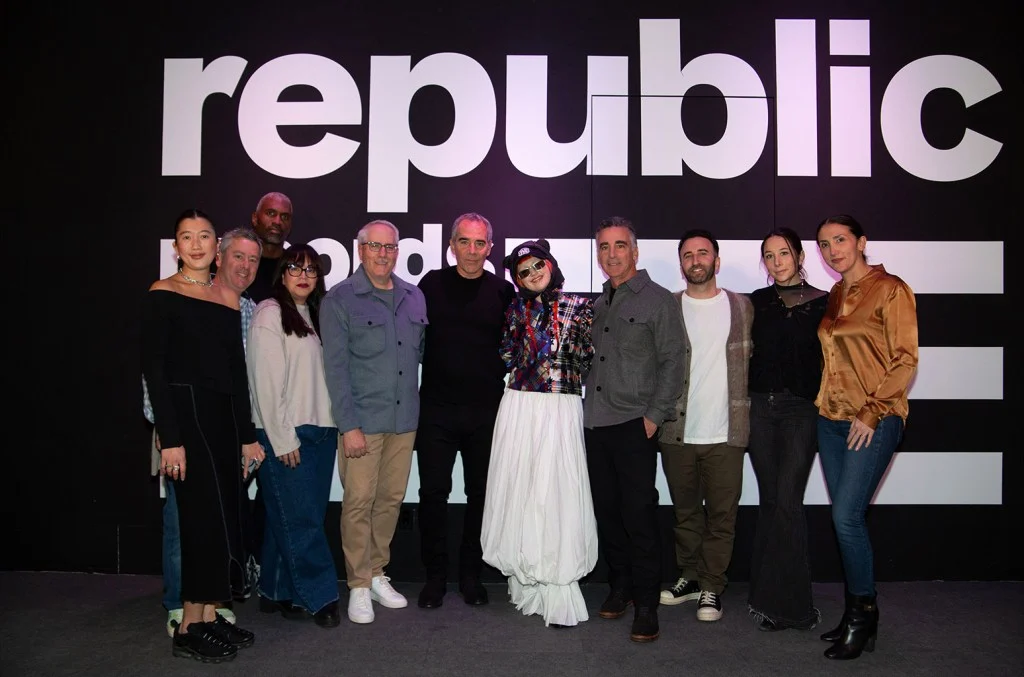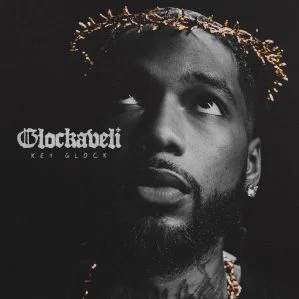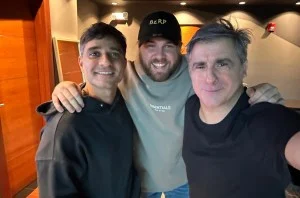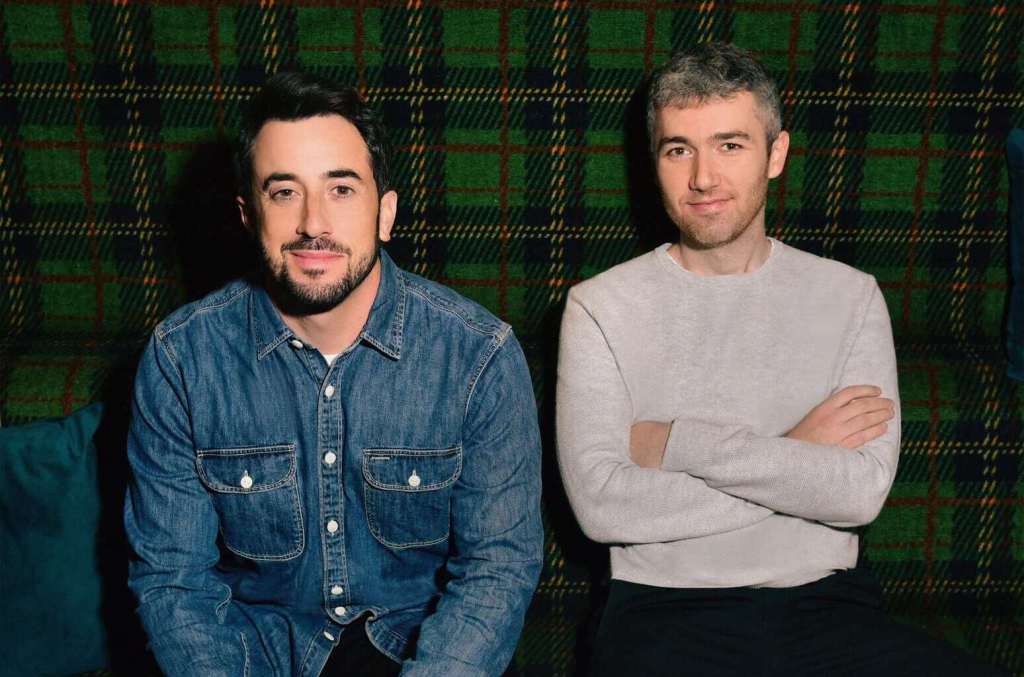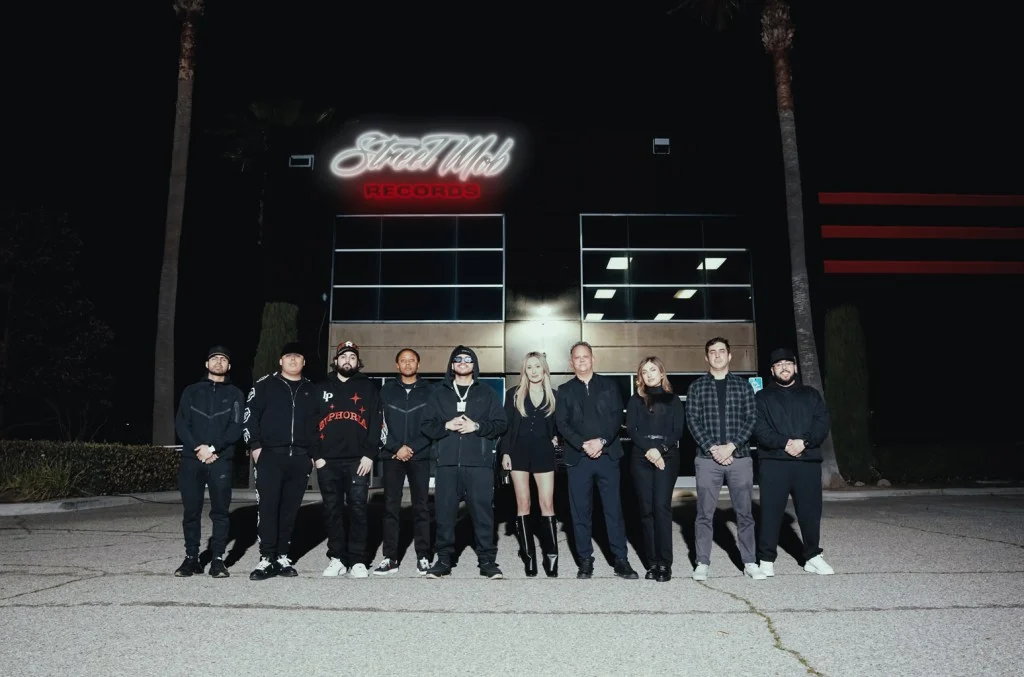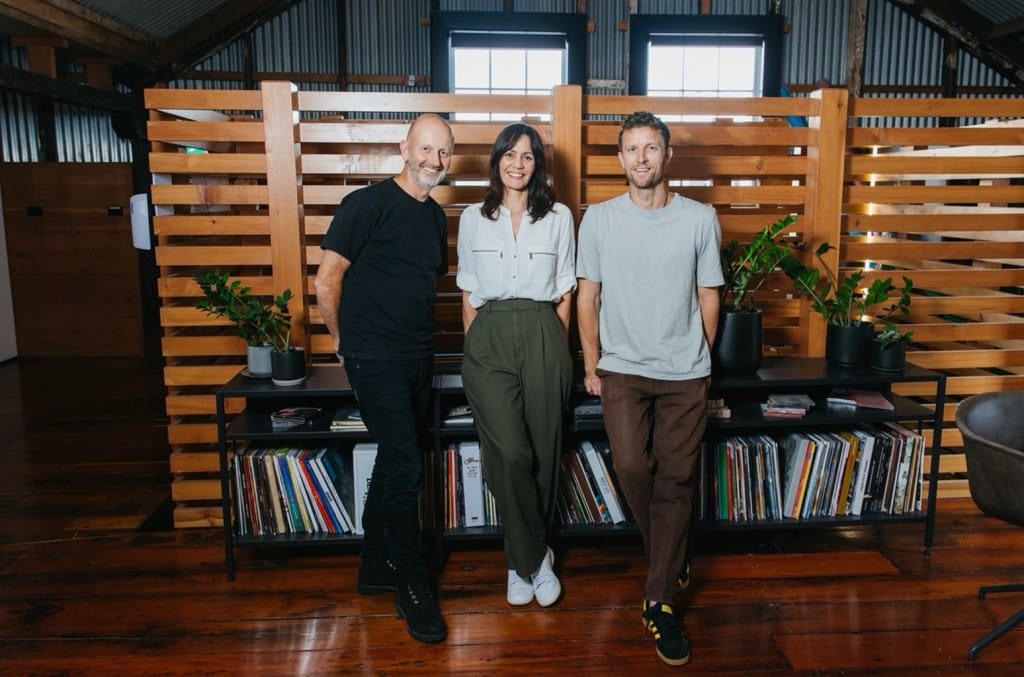Record Labels
Page: 12

For over a year, the K-pop industry has been embroiled in a heated debate over the girl group NewJeans. In fact, even the name “NewJeans” has become a point of contention following the group’s announcement in February that they would be rebranded as NJZ. However, their management company, ADOR, has disputed the legitimacy of this name change. While the group has requested to be referred to as NJZ, no legal ruling has been made on the matter, leaving the existing contract intact. As a result, from a legal standpoint, NewJeans remains the more accurate designation for the time being.
Amid ongoing legal uncertainties, NewJeans is moving ahead independently. This March, the group is scheduled to perform at ComplexCon Hong Kong, where they are reportedly debuting a new song. This move appears to be an attempt to further establish their rebranded identity as NJZ. After all, performing NewJeans’ hit songs while adopting a new name could be seen as contradictory.
Trending on Billboard
Music organizations and associations in Korea are closely monitoring the NewJeans situation. In February, five major organizations — the Korea Management Federation, Korea Entertainment Producers’ Association, Record Label Industry of Korea, Recording Industry Association of Korea and the Korea Music Content Association — issued a statement expressing concerns over NewJeans and former ADOR CEO Min Hee-jin’s independent activities. Their primary issue is “tampering,” with suspicions that Min has been attempting to remove NewJeans from ADOR.
The statement from the five organizations reads, “For the past 10 months, we have observed a growing trend, in which certain parties attempt to resolve private disputes through media campaigns and unilateral public statements instead of proper negotiations or legal procedures, including former ADOR CEO Min Hee-jin’s press conferences, NewJeans member Hanni’s appearance at a National Assembly audit, and the group’s independent activities.”
NewJeans fans argue that these five organizations are merely echoing ADOR/HYBE’s stance. However, the key issue at hand is their emphasis on the importance of “adhering to legal processes.”
At a press conference on Nov. 28, 2024, NewJeans members announced that “their contract with ADOR would officially end at midnight on November 29th.” They stated, “We have had enough conversations and sent certification of content, but there were no responses during that time. As ADOR and HYBE have breached the contract, we are terminating it.”
Since then, NewJeans has continued its individual actions and reiterated its stance in interviews with foreign media. In a CNN interview last month, the group emphasized, “We have completely lost trust in ADOR. We believe we will win this battle against HYBE and ADOR.” Through Japan’s TV Asahi, a subsidiary of Asahi Shimbun, they stated, “Right now, there are very few media outlets in Korea that carry our voices. Instead of letting that discourage us, we will enjoy our activities.”
International fans who have closely followed NewJeans’ statements may be more inclined to side with the group. However, with both the lawsuit verifying the validity of their claims and the injunction application still ongoing, their assertions remain one-sided. In this context, foreign media that present NewJeans’ perspective without providing balanced coverage of the ongoing legal dispute risk spreading misinformation.
NewJeans and ADOR remain deeply divided, locked in a tense standoff. On March 7, the Seoul Central District Court held the first hearing on ADOR’s provisional injunction request to “maintain the status of agency and prohibit the signing of advertising contracts.” Both parties presented conflicting arguments and failed to reach a resolution.
As a result, it is challenging to take a definitive stance between ADOR or NewJeans. The most prudent thing to do right now is to wait and see how the court reaches its decision, based on the various claims and substantial evidence presented by both parties.
This is precisely the position shared by the five music industry organizations in Korea. On Feb. 27, they held a press conference titled, “Let’s Keep a Promise: Without Record Producers, There is No K-pop!,” where they declared:
“No one can confirm the cancellation of a contract before the court’s judgment, and we must all accept the legal outcome, whatever it may be. This is the only way to protect our industry amid conflict and dispute.”
For now, the K-pop community watches and waits for the court’s decision — a ruling that could have lasting implications for NewJeans, ADOR and the entire industry.
This article was written by Austin Jin and originally appeared on Billboard Korea.
Singer-songwriter, producer and multi-instrumentalist Amelia Moore has signed with Republic Records, the label tells Billboard. Born in Georgia and now based in Los Angeles, Moore is known for tracks including “next door” featuring ASTN and “see through,” the latter of which spawned a remix featuring Coco Jones, Absolutely and Samara Cyn last year. Moore’s first […]
Memphis rapper Key Glock is officially joining Republic Records. As he continues to tease his upcoming album, Glockavelli, Republic announced exclusively with Billboard that Glock will be joining their roster. In addition to this new partnership, he’ll also remain under the late Young Dolph’s label, Paper Route Empire (PRE). The signing marks an exciting new […]
Warner Music Group (WMG) and Boston-based private equity firm Bain Capital are in advanced talks to form a joint venture worth around $1 billion to acquire music catalogs, according to three sources with knowledge of the talks.
Led by an equity investment from Bain, the joint venture will enable WMG to write bigger checks while spending less of its own money to acquire the catalogs it wants most.
A representative for WMG declined to comment, and a representative for Bain did not respond to a request for comment.
High interest rates and intense competition to own the rights to music from bands like the Red Hot Chili Peppers is leading major music companies to partner with outside investors to bolster their bids and assuage shareholders who may be put off by the price of a prized catalog.
Trending on Billboard
Some of the biggest catalog sales of all time occurred last year, with Sony Music acquiring Queen’s catalog and other rights for $1.27 billion. Earlier in 2024, Sony also acquired a stake in Michael Jackson‘s catalog for $600 million.
In many cases, music companies are looking to buy out an artist with whom they’ve worked for years and whose catalog they already partially own — like Sony Music did in 2022 when it bought Bob Dylan‘s master recordings. Owning more of the music’s intellectual property not only allows for more control over how the songs are used and licensed in the future, it prevents potentially embarrassing break-ups between record labels and their superstars.
The bidding wars have grown particularly pitched for master recording rights, which are more valuable today because streaming has extended the period that a song remains popular by several years, according to entertainment banking sources. Before streaming provided listeners with easy access to the entire universe of popular music and kept songs in regular rotation through playlisting, the revenue generated by a hit song’s master recording would fall off precipitously after its hype period waned.
A growing number of successful artists are also leaving major music companies to release music independently, have grown entire careers independently or have negotiated more favorable contracts with their major label partners, giving them more ownership of their master royalties. It all has some investors worried that the total addressable market of master royalties will grow more slowly in the future than in prior decades.
In early 2024, Universal Music Group (UMG) invested roughly $240 million to partner with Chord Music, a catalog investment company majority-owned by Dundee Partners, to give it similar flexibility to acquire catalogs off of its balance sheet and with financial help. The agreement gave UMG the administration and distribution business for the 60,000 music copyrights owned in Chord, and, in exchange for throwing its power as the world’s largest music company behind those assets to make them make more money, Dundee Partners became UMG’s long-term co-investment partner.
Sony Music has also partnered with institutional investors to help finance acquisitions, including Apollo, and WMG has explored investing in catalogs through outside vehicles as an early investor in both Tempo Music Group and Influence Media.
One of the financial engineers involved in structuring UMG’s deal with Chord was Michael Ryan-Southern. At the time, Ryan-Southern led Goldman Sachs’ investment banking team focused on the music industry. WMG hired Ryan-Southern last summer to serve as its head of corporate and business development, overseeing mergers and acquisitions.
Ryan-Southern’s team was key toWMG’s acquisition of Tempo Music, a $450 million deal announced on Feb. 6 that gives Warner the rights to songs by Wiz Khalifa, Florida Georgia Line and Brett James.
WMG’s ties to Bain Capital date back to 2004 when Bain was part of the investor group — also including Thomas H. Lee Partners, Edgar Bronfman, Jr. and Providence Equity Partners — to buy WMG for what was then $2.6 billion cash.
Warner Music Group CEO Robert Kyncl says the major is willing to forgo buying an indie distributor if it can achieve the same long-term gains by building in-house what would likely cost hundreds of millions to acquire.
“I’ve looked at all distribution companies over the last 18 months … and what I can tell you is that we’re not willing to grow this at all costs,” Kyncl said. “We have an incredible technology team … and they have been building features already for a year and a half. This way you get to the same outcome much more efficiently.”
The Warner Music Group (WMG) head made the comments during a wide-ranging conversation at a Morgan Stanley conference last week that touched on tech improvements and the motivations for WMG’s management overhaul last September, as well as the company’s deal with Spotify and Kyncl’s conviction that there is still room to raise streaming subscriptions prices in the U.S. and elsewhere.
Trending on Billboard
Kyncl, whose comments on mergers and acquisitions have been under a microscope since WMG abandoned a bid to acquire Believe last April, admitted that building technology in-house will take longer and doesn’t come with the immediate market share gains that accompany an acquisition.
The new hires and organizational changes Kyncl oversaw in the past two years are aimed at increasing WMG’s market share, he says. Under Ariel Bardin, who joined WMG in February 2023 as president of technology, the company has been working to fix the “boring things” in its core tech and digital supply chain to “ensure the stability of systems and [make] sure they could handle much higher volume for the future” without adding staff. It has also worked on WMG’s artist-focused tech services, like its client portal and the pipelines that can accelerate royalty payments.
Several rounds of staff cuts and a full-blown corporate reorganization removed multiple layers of management, giving Kyncl more direct contact with leaders like Alejandro Duque, president of Warner Music Latin America, and Elliot Grainge, the new CEO of Atlantic Music Group.
The company reported in February that these moves freed up money for investments — such as the $450 million acquisition of Tempo Music‘s catalog — and helped Atlantic claim a half-a-percentage point market share expansion.
Another of Kyncl’s hires, Carletta Higginson — the former Google executive who was hired as chief digital officer — was key to WMG’s direct deal with Spotify, which Kyncl says included assurances of more frequent price increases that distributors can profit from.
“In an industry where we are all tied at the hip together, it is important to approach it collaboratively and build for the future together,” he said. “We have a healthy set-up together with incentive to grow.”
Saying that WMG’s market share has improved since he joined the company, Kyncl called out promising upcoming releases from Ed Sheeran and Lizzo that are scheduled to come out later this year. Because more than half of WMG’s revenue comes from outside the U.S., Kyncl said the company’s global market share, particularly in certain countries, is as important as its U.S. numbers.
For the third straight year at the annual Morgan Stanley event, Kyncl sounded an optimistic note on streaming subscription prices thanks to “the incredible resilience of music.”
“I think there’s quite strong evidence that there’s a lot of room to grow on pricing, especially in … mature markets,” he said.
In 1997, David Bowie did something unusual: Rather than sign a standard recording contract, he entered into a licensing agreement with EMI America. Under the terms of the deal, the label would have the rights to more than two dozen of the star’s albums for 15 years, but after that period, those rights reverted back to Bowie. For much of music industry history, this sort of arrangement was rare. “I was at [Bowie’s label] EMI then,” recalls Tim Mandelbaum, an entertainment attorney. “For 99% of the artists on the roster, the label owned the recordings in perpetuity.”
Bowie was once the exception that proved the rule. But today, many artists demand license deals at the start of their career. “If I have an artist with a couple different labels that are interested, it’s fairly easy for them to retain copyright,” says Craig Averill, a music lawyer.
Trending on Billboard
This is a relatively recent shift, and its long-term impact on the major labels’ business remains unclear. Signing artists to traditional deals, where labels gained ownership of their recordings in perpetuity, allowed the record companies to amass large catalogs which gave them immense power in any subsequent music licensing negotiations — with streaming services, for example. “These labels were built on owning these copyrights,” says Larry Katz, who has spent more than 30 years practicing law in the music industry. “This is a really significant transition: The model going forward is they’re basically renting music for a license period.”
“How sustainable is that over time?” Mandlebaum wonders. “If the majority of deals become agreements where the labels don’t own the recordings and they revert to the artist at some date in the future, what does that mean for the continuing growth of the catalogs that have enabled the majors to remain dominant?”
Songs released in the last five years accounted for nearly 50% of on-demand streams in the U.S. in 2024, according to Luminate’s year-end report. Licensing deals also became increasingly common over the same time period, so presumably a solid chunk of the tracks in that 50% could revert to the artists that made them, slipping out of major label control.
Record companies have been forced to offer artists license deals because these acts can build fan bases and accomplish so much today on their own. The length of the license varies according to how much leverage the artist has. In many cases, “Labels will try to get at least 20 years,” according to Carron Mitchell, a partner at Nixon Peabody.
But if they want an act badly, they make exceptions — Loren Wells, a partner at Wells & Kappel, recently fielded a 10-year license as an opening bid from a major label that hoped to win over one of his clients. “I like the license to be as short as humanly possible,” says Audrey Benoualid, a music attorney. “I try to keep it below 10 years if I can.”
This usually does not mean that the artist gets to sign a license deal and strut away, recordings in hand, a decade later. The license period often kicks in nine to 12 months after the act releases their final album under the agreement. If it takes them five years to turn in the three records they owe the label, for example, the clock on the license doesn’t start counting down until around year six. This is still a significant improvement over a perpetuity deal, though: Under the U.S. Copyright Act, artists who signed away their recordings for life get a chance to regain these rights after 35 years, but only Stateside, not internationally.
In most license deals, acts with little commercial success are unlikely to get their recordings back — the rights only revert to the artist if they recoup their expenses. Depending on the deal they negotiated, though, “they may be able to buy themselves out,” says Ray Garcia, a partner at Rimon Law, “either by paying off the unrecouped balance or 110% or 120% of what’s unrecouped.”
Even when labels have to give out licenses, they have ways of holding on to recordings for longer. “They’ll try to build in options where at the end of the initial period, they can re-license the rights for five or 10 more years by paying an advance equal to several years’ worth of net profits,” says Jonathan Altschul, another music lawyer. Labels also try to insert “matching rights” into the initial deal, according to Josh Binder, a partner at Rothenberg Mohr & Binder, “so that whatever the artist’s next deal is, the original label gets a chance to match it.”
Even so, it is safe to assume that more artists have license deals with major labels now than at any point in the history of the music industry. Altschul “can’t remember the last time” he has ceded ownership of rights when negotiating a recording agreement for an artist client.
The major labels’ business has changed significantly in recent years, and it’s possible that the shift toward licensing deals might not matter much to them. “These are public companies now, and their duty is to their shareholders,” Wells explains. “Quarterly earnings reports have outsized importance. If that means licensing the track for 10 years [to boost those earnings], sure — whatever it takes to keep shareholders happy.”
While songs released in the last five years accounted for nearly 50% of on-demand streams in the U.S. in 2024, that trend has been relatively constant since 2020, according to Luminate data. And during that period, tracks that came out in the last 15 years make up close to 80% of on-demand U.S. streams. If this pattern holds in the future, and the majors continue to obtain licenses that last 15, 20, or 25 years, attorneys say the labels will still hold sway over most premier artists’ catalogs during their peak streaming years — that crucial time when the music is generating the most income.
Record companies could face a challenge, though, if several successful artists with short-term license agreements decide to take their catalogs elsewhere when their deals are up. Oren Agman, an entertainment attorney who worked for a major before founding his own law practice, believes that “license deals definitely have a negative impact on the labels’ business.” He estimates that a record company could collect “millions” in additional royalty income from a popular album in a perpetuity deal compared to a 10-year license agreement.
However, as Mandelbaum puts it, moving a catalog “is a gigantic pain” for an artist, “and some inefficiencies and loss of income occur during that switchover” — it’s often easier for a star to stay put and work with the team that is already managing their music, paying out producers and songwriters. On top of that, Mandelbaum points out that “the incumbent label can offer things to the artist that nobody else can offer.” In exchange for extending the license, for example, the record company can improve the artist’s cut of profits on the music they’ve already put out.
Still, as license deals become more common and license periods decrease, labels will have to return to the negotiating table earlier, and with less leverage than they had in the days of perpetuity deals. “An artist who signed a deal when they could barely pay rent gets a second chance at valuing their music,” says Lulu Pantin, a music lawyer. “The artist may have learned how the industry works, have a proven track record of financial success, and be in a position to make new demands in order for the label to keep earning on the original songs.”
In a license-happy world, Altschul predicts that the recorded side of the music business may start to look more like the music publishing industry. “We saw a wave of acquisitions in publishing over the last three to five years,” he says. “In many cases, that was because artists had either retained partial ownership of their publishing catalogs or had gotten reversions.”
“I suspect that 10 or 15 years down the line, we may see that happen more with recorded music,” Altschul continues. “Labels will have to write big checks to reacquire the rights.”
Rimas Entertainment, home to Bad Bunny and the No. 1 label on Billboard‘s 2024 year-end Top Independent Labels chart, has acquired a “significant” stake in Dale Play Records, the maverick Argentine label that’s home to DJ Bizarrap, Rels B and rapper Duki, Billboard can reveal.
The partnership includes Sony Music Latin Iberia, which continues to own a stake in the label. Helping bring the deal to fruition were Rob Stringer, Sony Music Group chairman and Sony Music Entertainment CEO; Afo Verde, chairman/CEO of Sony Music Latin America, Spain and Portugal; and Brad Navin and Jason Pascal of The Orchard.
Trending on Billboard
Fede Lauria, the Argentine executive who founded Dale Play out of Argentina and grew the label to its current stature, will retain a smaller percentage of the company and continue as CEO. The Orchard will also continue to distribute Dale Play as it has for years. The company’s other business verticals, which include booking and management — including the management of Duki, Nicki Nicole and Bizarrap — are not part of the deal and will remain solely under Lauria.
The partnership brings together two indie companies that have redefined the way Latin music is made and promoted on a global scale, with both developing and capitalizing on a new wave of urban music in Spanish — one centered in Puerto Rico (Rimas) and the other in Argentina (Dale Play) — with international ambitions. Rimas has already expanded its roster beyond Puerto Rico, signing Spain’s Quevedo and Mexico’s Latin Mafia.
“From day one, our mission has been to support and develop artists with authenticity and respect for their identity,” said Rimas Entertainment CEO Noah Assad in a statement. “With Federico and Dale Play, we’ve built a relationship founded on trust and mutual admiration. This alliance will allow us to break new boundaries and create opportunities for our artists and teams.”
In an earlier conversation with Billboard, Assad noted that this is Rimas’ first major acquisition and that it follows a longstanding friendship and years of business dealings between him and Lauria.
“We’re working hand in hand and all we’re doing is adding more value to each other, him to me and me to him,” he said. “The collaboration already existed. We’re formalizing something that was already happening.”
Lauria was already an established concert promoter in Argentina with the company Dale Play (which currently sells over 1 million tickets per year, mostly in Argentina) when he created the label portion of his business, Dale Play Records, in 2017, focusing on a previously untapped rap and trap music scene bubbling out of Argentina. Sony Music came in as a partner in 2020.
“Afo and I have had a long-standing friendship for many years, united by a mission to elevate Latin music to the highest level,” said Lauria in a statement. The new partnership with Rimas, he told Billboard earlier, “reflects a journey we have been on for many years with Noah, Jomy and the RIMAS team. We share the same vision and values. Our companies are 360 companies with similar philosophies and origins. They’re rare in the global market. We do management, booking, label, publishing. The potential that these two ecosystems have together and the mutual collaboration that our artists and businesses can have is huge.”
Fede Lauria, Noah Assad and Afo Verde.
Afo Verde/Sony Music Latin Iberia
Added Verde in a statement: “I have great admiration for the achievements of both Fede and Noah. They epitomize the new generation of executives and label leaders, characterized by their independent spirit and innovative approach. It is a privilege to continue our partnership with them, and I love that they wanted to work together.”
Assad and Lauria’s working relationship dates back to Bad Bunny’s early days as an artist playing small venues in Buenos Aires, which Lauria booked. Today, he still promotes Bunny’s Argentina stadium and arena dates. The two have since worked together on multiple artist collaborations and started discussing a possible partnership three years ago, with conversations solidifying last year.
“This alliance is key to expanding our global reach and connecting with talent wherever it may be,” said Jonathan “Jomy” Miranda, president of Rimas Entertainment, in a statement. “We have always been at the forefront of discovering new artists, and now, through this partnership, we will have ears in more corners of the world to support and develop the next generation of stars.”
“Rimas is still Rimas and Dale Play is still Dale Play,” said Lauria during his conversation with Billboard, when asked about the future management of the respective labels. But, he adds, both labels have been “an essential part of the development of a cultural movement, and we’re in the process of shaping artists in Spain and Mexico that aren’t Argentine or Puerto Rican. Being together gives us huge power.”
Everything aligned to make the partnership come together now, said Assad. “We want a partner that has a clear vision, knows what they want and knows their destination,” he adds. “Culturally speaking, we share a lot of the same culture, and that’s why we’re doing this strategic alliance.”
Mercury Records has promoted Tyler Arnold to chairman/CEO and Ben Adelson to president/COO of the label, the company announced Wednesday (March 5). Arnold previously served as president while Adelson served as general manager at the label, which they relaunched in 2022.
Under Arnold and Adelson’s leadership, Mercury has released hit albums including Post Malone’s F-1 Trillion and The Diamond Collection, Noah Kahan’s Stick Season (Forever) and, via the label’s partnership with Big Loud, Morgan Wallen‘s One Thing At A Time and Dangerous: The Double Album. Most recently, Wallen’s single “I’m the Problem” debuted at No. 1 on Billboard‘s Hot Country Songs chart and No. 2 on the Billboard Hot 100.
Arnold and Adelson will report to REPUBLIC Collective founder/chairman/CEO Monte Lipman and founder/vice-chairman/COO Avery Lipman, who noted in a statement, “Tyler and Ben began their careers at Republic, and we’ve had a front-row seat to their incredible growth. It’s been nothing short of inspiring to watch. With Mercury, they are building a legacy that honors the label’s history by developing, breaking and supporting the next generation of career-defining artists.”
Trending on Billboard
“The last three years at Mercury have been incredibly special,” said Arnold. “I could not be prouder of our artists, our team and the culture we’ve created. Ben and I set out to build a label that supported artist development with time, patience and a real commitment to A&R and creative marketing. I’m very grateful to Monte and Avery for their continued support of our vision and am so excited for this next chapter of Mercury Records.”
Adelson added, “I am honored to continue building the legacy of Mercury Records. More than anything, I’m most proud of our authentic and dynamic roster and the team we have brought together. Thank you to Monte and Avery for their continued support and guidance.”
New York-based Arnold started as an intern at Republic Records and, after joining the label as an A&R assistant, signed Malone. He ultimately rose to the role of vp. In addition to Malone, he’s also signed such top acts as Metro Boomin and Bo Burnham and partnered with Big Loud to build Wallen into a superstar. He has been named to Billboard‘s Power 100, R&B/Hip-Hop Power Players, Country Power Players and 40 Under 40 lists.
Los Angeles-based Adelson also started at Republic as an intern and was hired as an assistant to Avery Lipman in 2008. He subsequently managed Young the Giant, kickstarting the band’s rise to an arena-level act, before rejoining Republic as director of A&R and rising to become executive vp of A&R in 2018. He has signed artists including Kahan, James Bay, Stephen Sanchez, Conan Gray and Lord Huron. He has been named to Billboard‘s Power 100, Country Power Players and 40 Under 40 lists.
The Mercury Records roster also includes AJR, Chelsea Cutler, Bay, Jeremy Zucker, Huron, Sanchez and ZAYN.
Street Mob Records, the indie label founded by Fuerza Regida frontman Jesus Ortiz Paz (JOP), and which has seen impressive gains on the Billboard charts in the past year, has hired veteran music executive Gustavo López as its new president. The move signals Street Mob’s intention to become “the next big Latin music label,” says JOP, and is part of the label’s significant expansion and its intention to grow further.
In addition to López, Street Mob has also appointed Cindy Gaxiola as its vp of commercial affairs, Niria León as vp of booking and Jesús Amezcua as its vp of marketing. They join an executive team that already included COO Cristian “Toro” Primera and CFO Luis López. Both are partners on Street Mob with JOP, who launched the label as a rookie artist in 2018 and has seen it grow exponentially, especially in the past two years, expanding a roster that now includes Chino Pacas, Clave Especial and Armenta.
Trending on Billboard
“We got The Avengers,” says JOP quite seriously. “The whole point of this is we’re going to the next level with Street Mob Records. We got the avengers. We got Gustavo Lopez as the president. We got two incredible female senior VPs who are running the company on the touring and management side. That’s why we’re calling it the avengers. Now we have the best of the best.”
Street Mob ended 2024 at No. 6 on Billboard’s year-end Top Latin Imprint chart and the labels’ publishing division — Street Mob Publishing — won publisher of the year at the 2024 Billboard Latin Music Awards. According to López, in this week’s Billboard regional Airplay chart, Street Mob is represented in some way — whether songwriting, producing or artist — in 44% of the chart’s top 25 songs.
For all those successes, bringing in López signals JOP’s seriousness about growing and expanding his business. As part of his long trajectory, López launched maverick reggaetón label Machete Records under Universal in the 2000s, distributing stars like Daddy Yankee and Wisin & Yandel, and was later president of regional Mexican powerhouses Fonovisa and Disa Records. Most recently, he served as CEO of Saban Music Latin until its acquisition by Virgin last year, and launched entertainment company Globalatino Music Partners.
Although López will continue to oversee Globalatino’s overall operation, he will be devoted full time to Street Mob, which is based in Los Angeles. “When I had the opportunity to meet JOP and saw how integrated he is in the business, and how young he is, it was an inspiration for me,” says López. “I thought, ‘If I’m going back to Mexican music, I’m going to do it with the best.’ There’s a lot going on at Street Mob that maybe the industry is not aware of. These guys are more than just the label. And now it’s just formalizing the team.”
JOP founded Street Mob in 2018 “with the hopes of one day being a big record label,” he says. At the time, he was already a fledgling artist, and he wanted to learn how the business worked. In 2020, when things got tough and many in his circle deserted him, Primera and Luis López stayed by his side and JOP made them partners in Street Mob.
“Together with them, we learned the business,” says JOP today. “And little by little, with all our creativity, I think we know. We know how to make a hit.”
Though managed by Street Mob, Fuerza Regida is not signed to the label. Instead, they have a joint venture with indie powerhouse Rancho Humilde and are distributed by Sony.
The group — a juggernaut that won Top Duo/Group at the 2024 Billboard Music Awards, beating international stars such as Blink-182, Coldplay, Linkin Park and Stray Kids — placed three titles in the Top Latin Albums top 10, including Pa Las Baby’s Y Belikeada, which peaked at No. 1 for three weeks.
But since its inception, JOP has been signing new artists, songwriters and producers to Street Mob and has different deals with each, with distribution in place with Cinq, Universal and Warner Music Latina, with whom Street Mob inked an exclusive partnership last year for its artists Armenta, Clave Especial and Calle 24.
Since last year, JOP has been looking for someone to head the label because “it was finally too much for us. But we needed to find the right person. Gustavo is perfect.”
Street Mob currently has 10 artists signed to the label, plus its own publishing company, management and touring division. The company just purchased a 35,000 square foot facility in Rancho Cucamonga, near Los Angeles, with a goal to build an office that will house everybody in the Los Angeles area, says López.
“You can’t mess with the secret sauce,” he says. “The A&R is where it needs to be. We just need to get some finer points aligned and it will continue to expand.”
For JOP, a big part is nurturing artists from the ground up.
“We’re like a school,” he says, citing emerging artist Jorsshh, who started as a writer and now has over nine million listeners on Spotify. “We show them the business and try to open doors for them to go to the next level. We’re trying to make this a big record label within Latin culture.”
There’s big changes afoot in the leadership team at Universal Music New Zealand, with longtime Managing Director and Chairman Adam Holt announcing his retirement.
News of the leadership transition was announced by Universal Music Australia & New Zealand President and CEO, Sean Warner on Tuesday, March. 4 (New Zealand time). Holt’s decision to retire comes after 24 years successfully leading the company, and 34 years spent at Universal Music Group and predecessor company Polygram. Holt’s retirement will take effect on April 30, with successors Myra Hemara and Matt Kidd being promoted to Co-Managing Directors, effective May 1.
“Adam’s commitment to our company, our artists, our people, and the greater New Zealand music industry has been nothing short of exemplary,” Warner said in a statement. “Throughout his tenure he consistently promoted a positive culture of both UMNZ and UMA garnering him enormous respect from both employees and artists alike. Adam is a passionate music man, caring mentor and consummate professional, who led from the front and made lifelong friends across the UMG, the artist community artists and with our partners around the world.”
Trending on Billboard
“Leading the New Zealand company for UMG has been the experience of my life,” added Holt. “I am immensely proud of what we have achieved and the challenges we have successfully navigated over the years, but it’s time for me and the company to start the next chapter. A big thank you to Sir Lucian Grainge and Sean for trusting me with UMNZ for so long, and a huge thank you to the entire Universal Music team across New Zealand and Australia. You are an amazing group of people and I will miss you immensely. Most importantly, thank you to all the artists I have had the honour to serve in my time at Universal. I remain in complete awe of you all.”
“I am thrilled to announce that the current UMNZ General Managers, Myra Hemara and Matt Kidd, will become the new Co-Managing Directors of the company,” Warner continued. “Matt and Myra have incredible experience within UMNZ and have been at the forefront of the changes we have made in New Zealand over the past couple of years, Together, with the support of UMNZ Chief Financial Officer & Commercial Director, Tony Jenks, they will form a strong executive leadership team that will drive a new era of success for Universal Music New Zealand.”
Hemara joined UMNZ in 2006, working on establishing their digital department and strategy upon her addition to the team. In 2017, Hemara was appointed General Manager, taking on the additional responsibilities of leading UMNZ’s international artist marketing and audience development teams.
Kidd, meanwhile, has been with UMNZ for the past 12 years, having begun his career in promotions and public relations before leading their domestic repertoire and business development teams. Since 2017, Kidd’s role as General Manager has seen him focus on exporting New Zealand talent on a global scale.
“Being given this opportunity to lead Universal Music New Zealand alongside Matt is a great privilege and honour,” Hemara said. “The legacy Adam has created for our artists and staff has provided an incredible foundation for Matt and I to build on. I’m looking forward to fostering a culture of connection, creativity and collaboration and delivering even more success for our incredibly talented artists.”
“Thank you to Sean for giving Myra and I the opportunity to lead this great company,” added Kidd. “It’s exciting to take on this new role at a thrilling point in the business, where the landscape and scope for how we can work with and develop our artists is changing dramatically. I’m beyond excited to be a part of the best team in the country and to continue driving excellence and innovation for our artists in New Zealand, and around the world.”

 State Champ Radio
State Champ Radio 